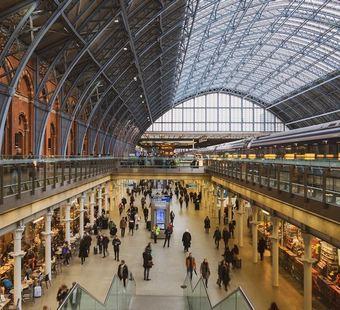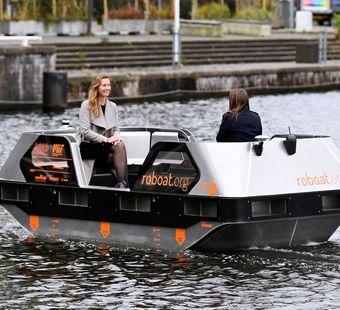Malaysian malls, a once popular meeting, socialising and shopping hub, were among the businesses worst hit by the COVID-19 pandemic. According to the Malaysia Retail Industry Report, the retail sector, already struggling to keep up with the online shopping boom of the last decade, experienced a contraction of 30.9 percent in the second quarter of 2020, due to repeated closures caused by the various Movement Control Orders (MCOs).
In the final quarter of 2021, however, malls experienced a resurgence, following the lifting of MCO 3.0. This is expected to hugely benefit the economy, since the retail industry has consistently been one of the largest contributing sectors to GDP, with a sales value of RM41.1 billion in July 2021 alone.
Nevertheless, it’s not all business as usual since the pandemic has sparked a massive shift in the way people live, spend and consume, a change that mall owners are already beginning to tackle to ensure their longevity. Based on strategies and positive developments emerging in Malaysia, the Retail Group Malaysia (RGM) is cautiously optimistic that the sector will see a 6 percent growth in sales in 2022.
Health & safety
Global analysts and industry players have attributed the post-MCO resurgence to ‘revenge spending’ and ‘pent-up demand’, as people are excited to leave their homes and resume their ‘normal lives’ after nearly 18 months of restrictions. Despite this, worries over contracting the virus remain the biggest concern when venturing out, so being able to provide rigorous health and safety reassurances is paramount.
Sunway Malls and Theme Parks CEO H. C. Chan, speaking to the New Straits Times, said that the group has comprehensively upgraded health and safety measures at their malls, including round-the-clock sanitisation at common areas, disinfection during non-operating hours, social distancing reminders, providing additional hand sanitisers, as well as requiring temperature and risk status screenings at all entry points.
On top of that, Sunway Malls also carry out more air-conditioning and mechanical ventilation chemical treatments, require updated vaccination records and a daily health declaration status for all retail staff, provide COVID-19 test kits for tenants and visitors, and conduct regular spot checks on retailers to ensure that they are adhering to SOPs.
"We have also trained emergency response teams to handle emergency situations and cases that may arise,” Chan said.
Beyond buying
Stringent SOPs will not be enough for malls’ long-term survival and growth, particularly in the wake of the rise of online shopping. Malaysia’s e-commerce income soared 17.1 percent to RM279 billion in the third quarter of 2021, representing a GDP contribution of 11.5 percent.
According to a paper released by Zerin Properties, the future of brick-and-mortar shopping will be experience-driven: “Consumers will crave more social interaction. Shopping malls are a meeting place for the community and a multi-purpose destination that offers extensive leisure activities. A tenant mix of complementary uses allow customers to have an interactive experience.”
One such development is The Exchange TRX, a lifestyle destination being built at the heart of Tun Razak Exchange. The first of its kind “lifestyle precinct in the park” concept offers visitors an immersive experience, courtesy of 400 lifestyle, entertainment and dining offers, concept stores as well as new-to-market brands, and all crowned by a 10-acre activated public park on the roof.
“At The Exchange TRX, we are focused on providing diverse experiences, where the community can come together, socialise and enjoy what the precinct has to offer - a departure from the conventional retail experience in Malaysia,” says Mitch Wilson, Head of Retail Lendlease Malaysia.
Synergising online and offline
As consumers have also gotten used to the convenience of online shopping, a visit to the mall must be able to compete on this front. Zerin Properties recommends that retailers embrace digitalisation and hybrid shopping models by investing in tools and applications that lead to a smoother shopping experience.
This is echoed by a study by Deloitte reporting that retailers are re-evaluating the business case for bricks-and-mortar, focusing on more profitable or flagship locations, and strengthening their brand through the interplay between the physical store and online channels.
Malls in Canada and the US have started offering services such as self-check-out, click-and-collect, curb side/store-door pickup, buy-online-pickup-in-store (BOPIS), and free or hassle-free returns through centralised return areas within the mall. American luxury chain, Nordstrom, has rolled out Nordstrom Local, small stores with no inventory. Instead of goods, it offers services, such as online order pickup and return, style advice, tailoring/alterations, and beauty services, with merchandise that can be delivered to the Local location within a few hours.
Other innovations can include elevating in-store associates to the role of trusted brand advisors, able to understand and find personalised solutions to customer needs, and even using robotic store assistants that match customers to products.
---
Photo credit: Lendlease






